Professional laser marking machines Made in Italy
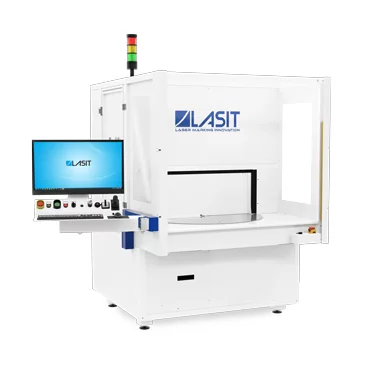
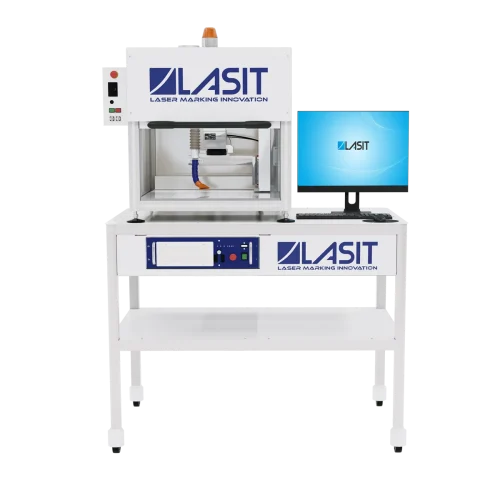
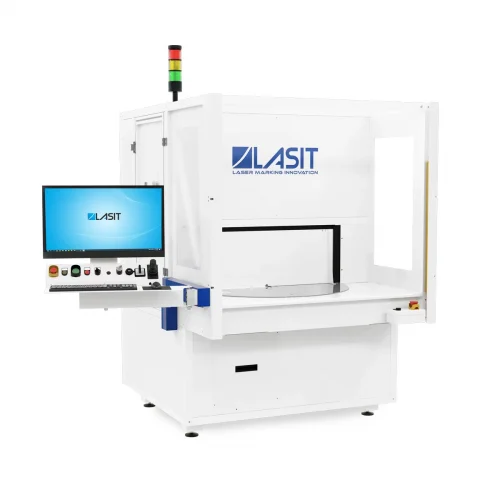
Laser marking is a process of engraving or permanently marking a material using a laser beam. It can be used on a wide range of materials, including metals, plastics, glass, ceramics and more.
The process works by passing an intense laser beam through the material to be marked. The laser beam is focused on a specific point on the material, thus creating a visible marking on the surface. Laser marking can be used to engrave characters, numbers, symbols and even images on the surface of a material.
It turns out to be a very precise process and can produce high-quality markings with a very high resolution. In addition, laser marking is a non-invasive process, which means that it does not damage the underlying material during the marking process. Overall, it is also a fast and efficient process, making it a widely used choice for a wide range of industrial applications.
We have seen how laser marking is a modern and efficient way to help identify and track industrial products.
This metal engraving solution is appreciated for its flexibility, reliability and economy; it does not use inks, masks, solvents, acids or tools in direct contact with the surface.
In this scenario, laser markers are devices that use a laser beam to engrave or mark materials. They can be used to produce permanent markings on a wide range of materials, including metals, plastics, glass, ceramics and more.
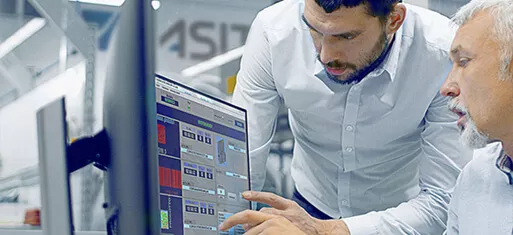
Our laser markers are equipped with a full range of laser sources: fibre, UV, green, CO2 and picosecond lasers. We can engrave on any metal, plastic or natural element..
Laser marking is an advanced technique that uses the precision and power of a laser beam to engrave permanent marks on various materials. The process begins with the generation of a laser beam from a specific source.. This beam is then directed and focused on the surface of the material by a system of mirrors and lenses.
At the heart of the laser marking system is a computer, which controls the movement of the laser. The software allows specific paths and complex designs to be programmed, thus enabling millimetric precision. This makes laser marking ideal for applications requiring high precision, such as the production of electronic components or the customisation of jewellery.
When the laser hits the surface of the material, its high energy is absorbed, causing a physical or chemical change. Depending on the nature of the material and the type of laser used, this may result in an engraving, a colour change, or the creation of a relief on the surface. For example, the laser can vaporise a small portion of material to create an engraving, or it can cause a chemical reaction that changes the colour of the surface.
Types of lasers most commonly used in these processes include the fibre laser, ideal for metals and plastics, and the CO2 laser, mainly used for wood, glass, and some types of plastics. The choice of laser depends on the material to be marked and the desired effect. Some materials require more power to be engraved, while others can be marked with lower settings.
In addition, laser marking can be used to create barcodes, serial numbers, company logos, and even detailed artwork This versatility makes it a technique in great demand in various sectors, including automotive, aerospace, medical and fashion.
Ultimately, laser marking is a state-of-the-art technology that offers unique advantages in terms of precision, versatility and brand durability. Its ability to produce detailed and permanent marks on a wide range of materials makes it an ideal choice for many industrial and creative applications.
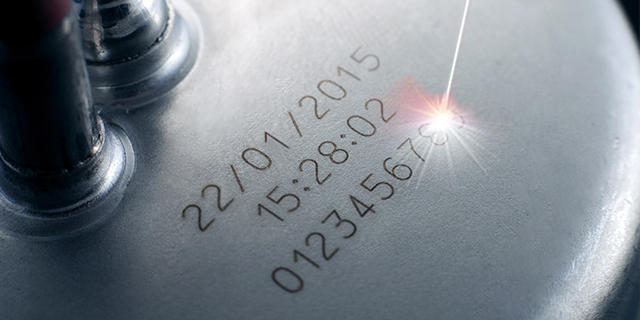
How much a laser marker costs is a complex question, as the price can vary significantly depending on various factors. First of all, the type of laser used (e.g. fibre laser, CO2, UV) can affect the cost. Other factors include the complexity of the marking system, the desired marking speed, software features, laser power, and whether or not extra functionality such as a vision system for part alignment is required.
All in all, laser markers can cost from a few thousand to tens of thousands of euros. However, it is important to remember that the purchase of a laser marker is a long-term investment. Unlike other marking methods, laser markers have a longer life span, require minimal maintenance and can offer superior marking quality, time savings and flexibility.
LASIT’s laser marking machines represent a state-of-the-art solution in the field of industrial marking, offering a wide range of products and customisable solutions. LASIT machines are known for their ability to engrave on a variety of materials, including metals, plastics and organic materials, using the most advanced laser technology, such as Picosecond, UV and Femtosecond lasers. This makes them suitable for multiple applications, from jewellery to the automotive industry and beyond.
One example is the MicroMark G3, a versatile and compact bench-top laser marker, ideal for use in industrial and jewellery applications. This machine is characterised by its programmability and an integrated vision system, which increases its efficiency and precision. The MicroMark G3 also offers the possibility of working with robots, thanks to its programmable electric door, and its three-sided opening structure facilitates the loading and processing of large workpieces.
Another interesting solution is the RotoMark, a laser marker equipped with a mechanical rotary table that can accommodate from 2 to 8 stations. This machine is ideal for marking large batches of parts or large workpieces. The RotoMark guarantees high productivity, stability, precision and repeatability, thanks to its welded steel construction and rotary table mechanism.
The company is committed not only to the production of high-quality machines, but also to continuous innovation and research and development, investing a significant part of its turnover in these areas. In addition, the company offers global support to its customers, with more than 30 affiliate and partner locations worldwide.
These products and solutions demonstrate LASIT’s commitment to providing highly efficient, reliable and customisable laser marking machines suitable for a wide range of industrial and creative applications

+39 800 821 577
sales@lasitlaser.com
Location
ITALY | Via Solferino 4, 80058
Torre Annunziata (NA) - Italy
POLAND | Ul. Fabryczna 34, 43-100
Tychy, Poland
SPAIN |
Calle Bari 55, 50197
Plataforma Logística Zaragoza
GERMANIA |
Im Stockäcker 7, 78194
Immendingen
REGNO UNITO |
Unit 6 Blythe Valley Innovation Centre
Central Boulevard
© 2024 LASIT Sistemi e Tecnologie Elettrottiche S.p.A. | P.Iva 02747991210 | C.F 01803670643 | Chi Siamo | Contattaci Privacy Policy.